Nur-Sultan – Top places to see
Elevation: 340 meters
Population: Around 1 million
Climate: Continental
Best time to visit: May-September
Astana is the capital city of Kazakhstan. The city became the country’s capital in 1997, replacing Almaty. Since then, the appearance of the city has changed completely and a number of world-famous architects have begun to play a major role in its planning and construction. The city plan was designed by the late Japanese architect Kisho Kurokawa and many of Nur-Sultan’s prominent buildings were built by famous architect Norman Foster. These are some of the top places to see and visit in Astana: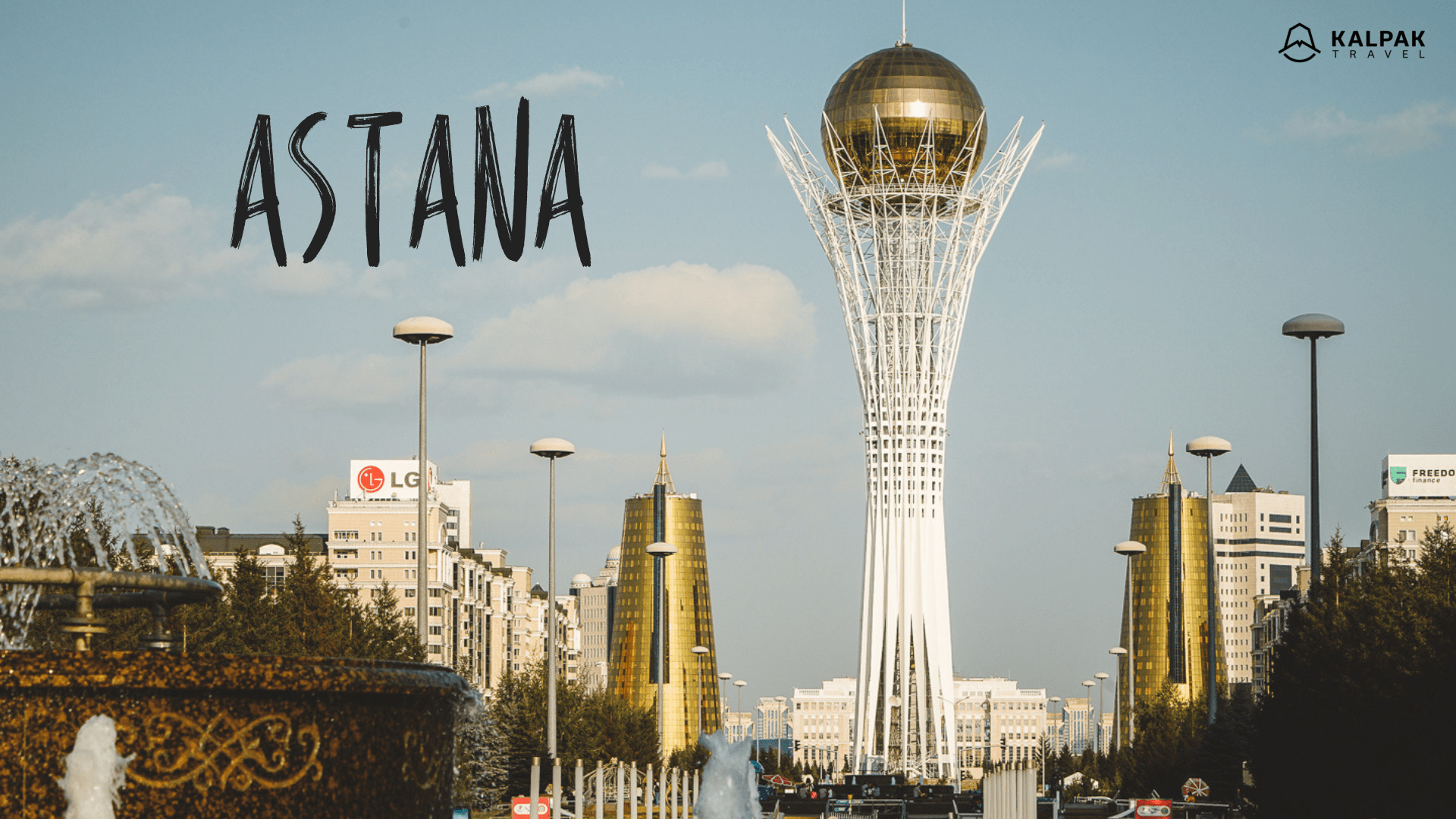
Baiterek
Baiterek is the most prominent symbol of Astana and Kazakhstan as a whole. This tower has an observation deck inside a yellow sphere which can be reached by elevator. Baiterek stands 105 meters tall and the observation deck is located at the 97-meter mark, symbolizing the year the city became the capital of Kazakhstan. Baiterek translated from Kazakh means holy or rich poplar tree. The building’s structure is inspired by old Kazakh legends of a World Tree representing the universe and Samruk, the bird of happiness. It was completed in 2002 by designer Akmursa Rustembekov and his team. Inside the sphere, you will get a nice view of the city and can enjoy a cup of coffee. 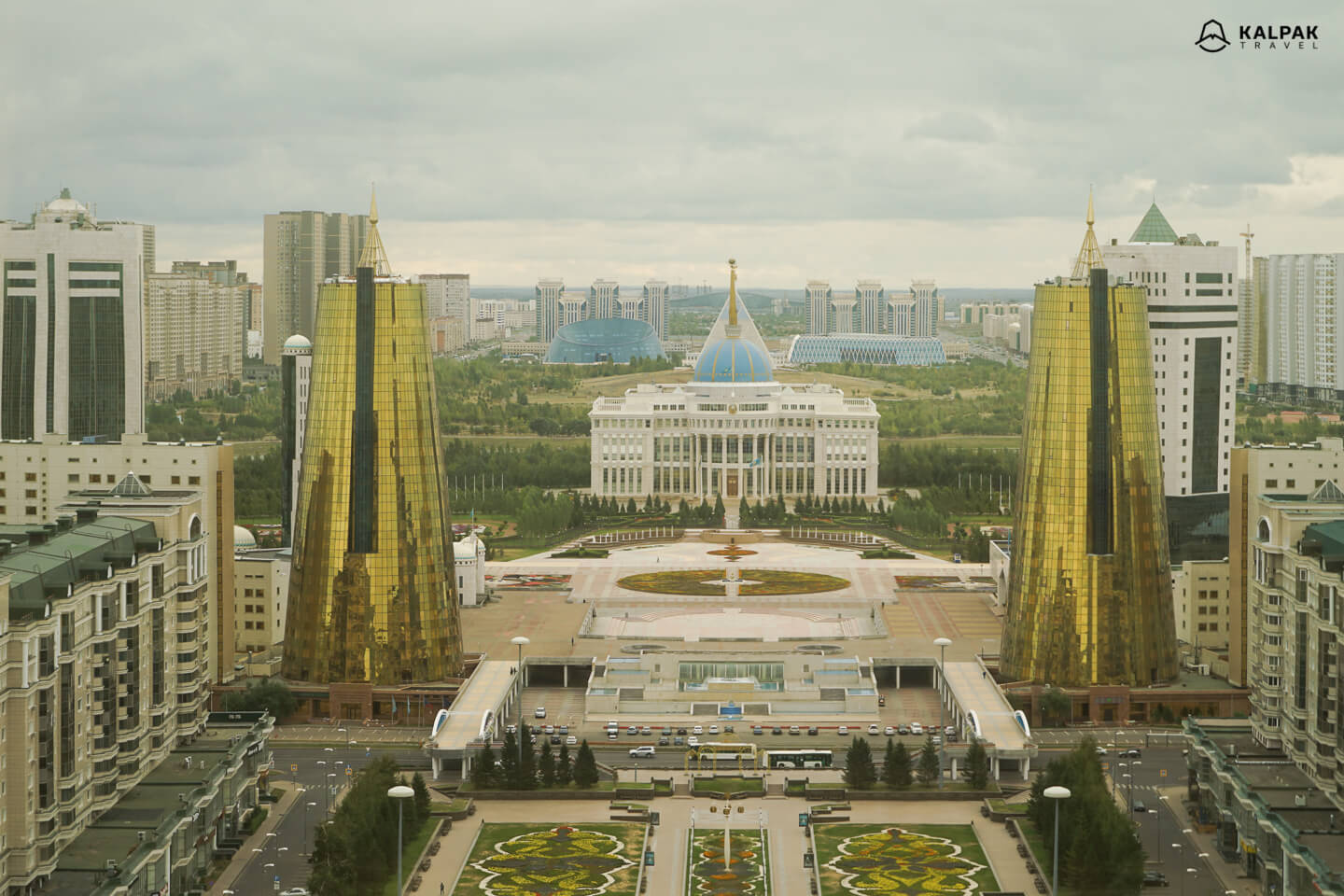
Nurzhol Boulevard
The ‘Nurzhol’ Boulevard is the central pedestrian road and is approximately 1.5 kilometers in length. Adorned with beautiful flowers and ice cream stands in summer, the boulevard boasts a large array of sculptures and other magnificent works of art. 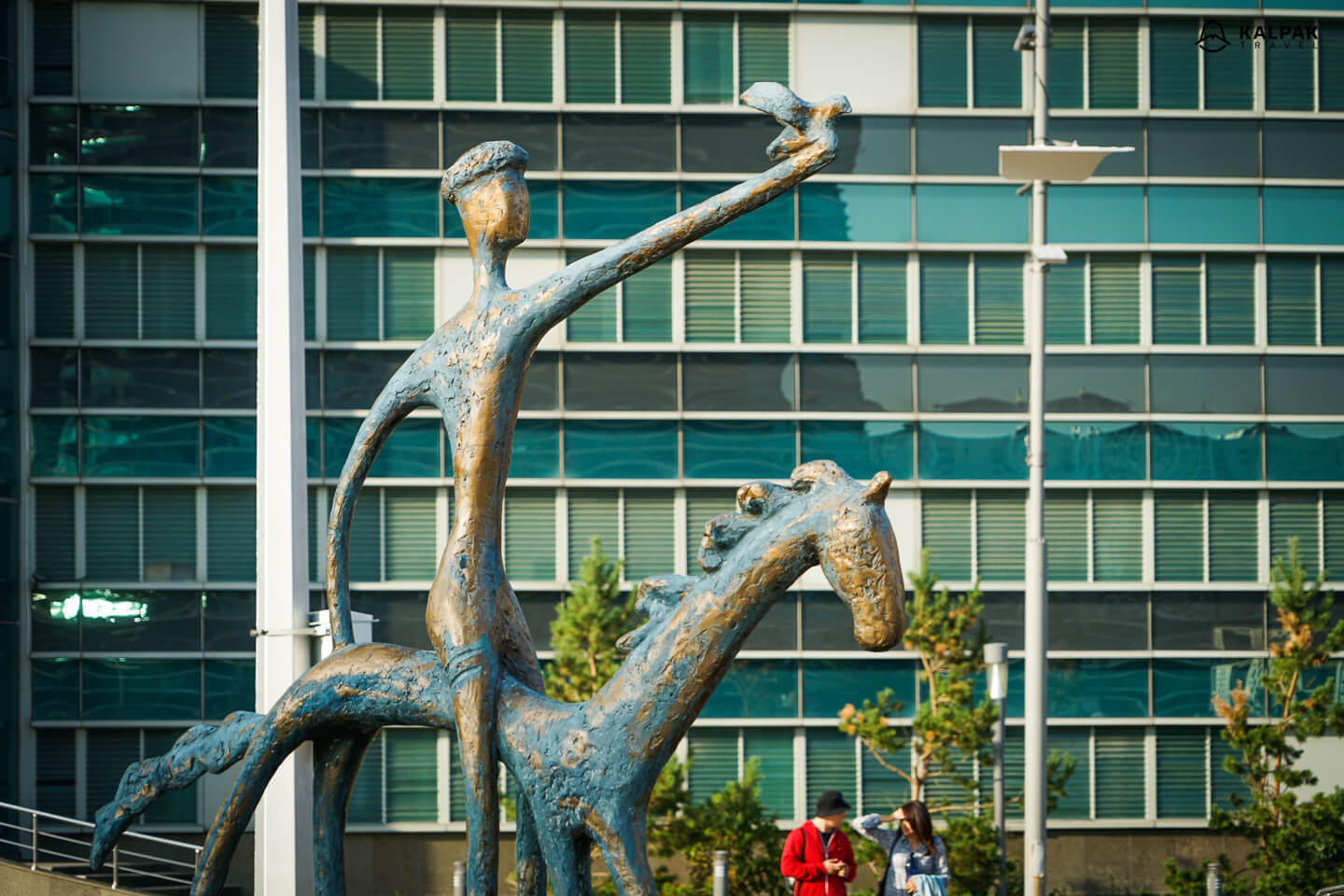 Some examples include traditional nomadic motives of horseman, archers and people with musical instruments. There are also several futuristic art pieces of animals to be found throughout the surrounding territory of Kazakhstan, such as flamingos, saiga and snow leopards.
Some examples include traditional nomadic motives of horseman, archers and people with musical instruments. There are also several futuristic art pieces of animals to be found throughout the surrounding territory of Kazakhstan, such as flamingos, saiga and snow leopards.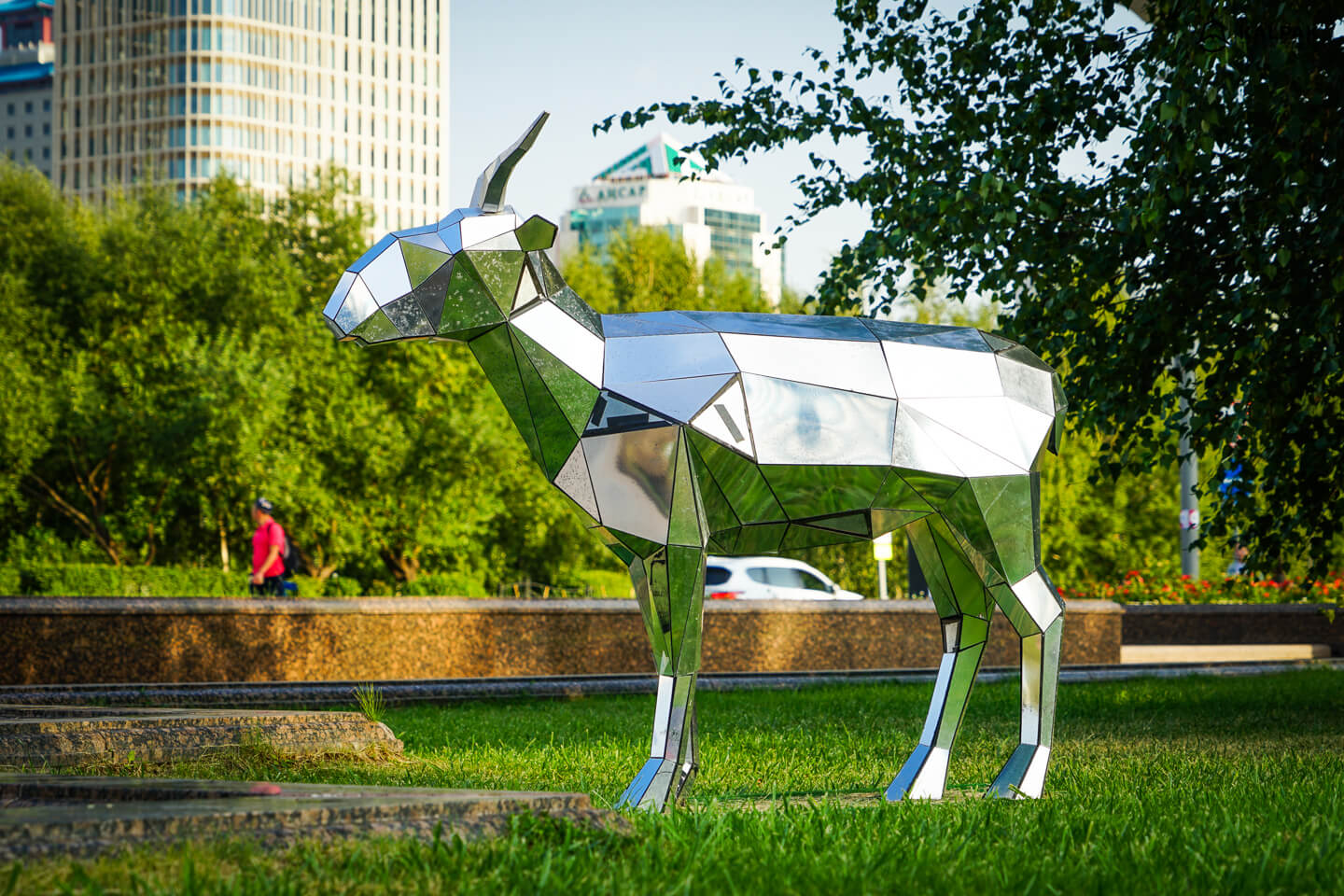 At the end of the ‘Nurzhol’ boulevard is a round area with a fountain in the center.This round-shaped town square consists of a combination of residential and administrative buildings, as well as a selection of different restaurants. Here one can find traditional Kazakh cuisine as well as Italian, Georgian and Japanese cuisines.
At the end of the ‘Nurzhol’ boulevard is a round area with a fountain in the center.This round-shaped town square consists of a combination of residential and administrative buildings, as well as a selection of different restaurants. Here one can find traditional Kazakh cuisine as well as Italian, Georgian and Japanese cuisines. 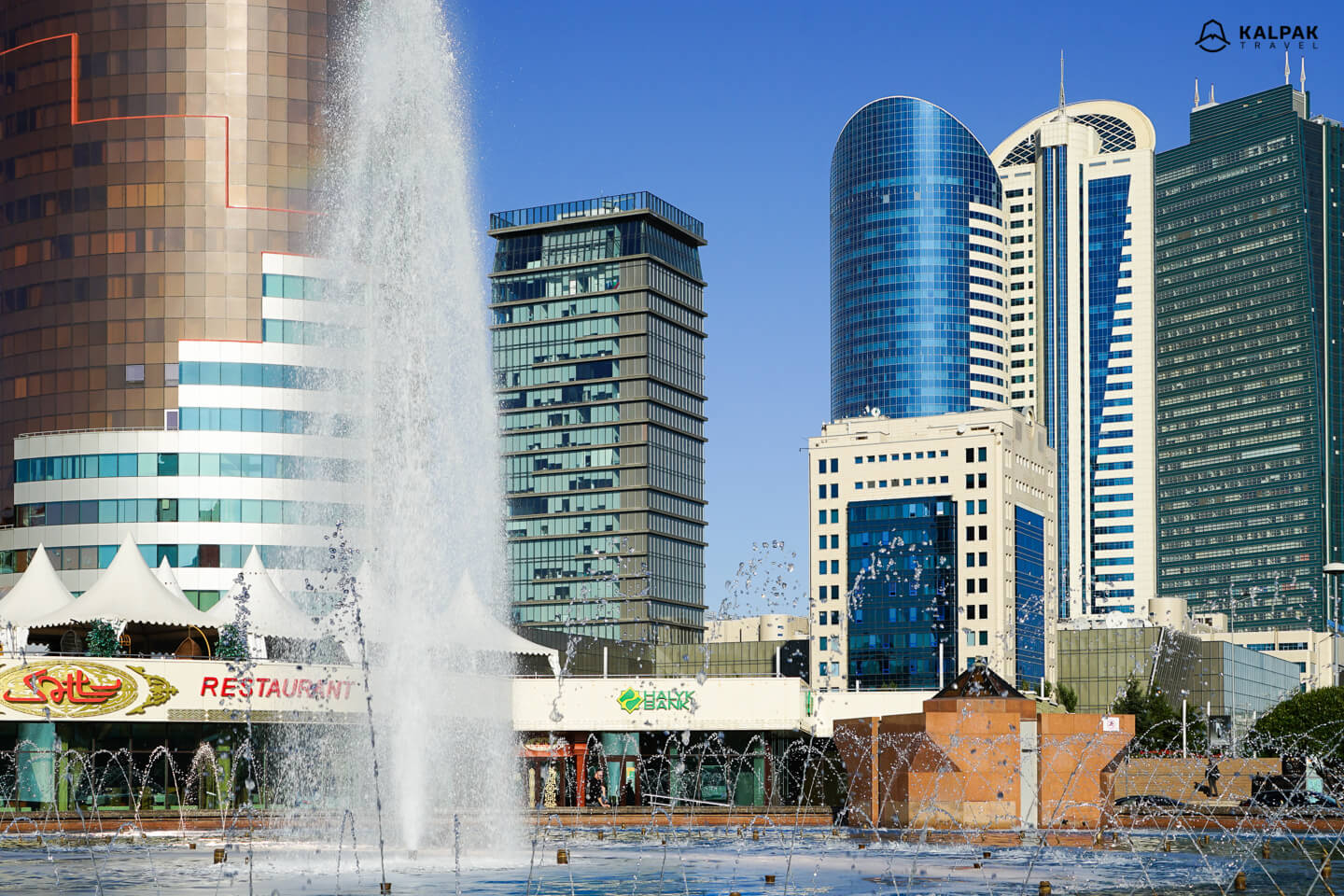 The main building in this area is the large, rose-gold colored administrative complex of KazMunaiGaz. At the center of the square is a tall archway leading pedestrians to “lover’s park” and the Khan Shatyr Entertainment Center.
The main building in this area is the large, rose-gold colored administrative complex of KazMunaiGaz. At the center of the square is a tall archway leading pedestrians to “lover’s park” and the Khan Shatyr Entertainment Center.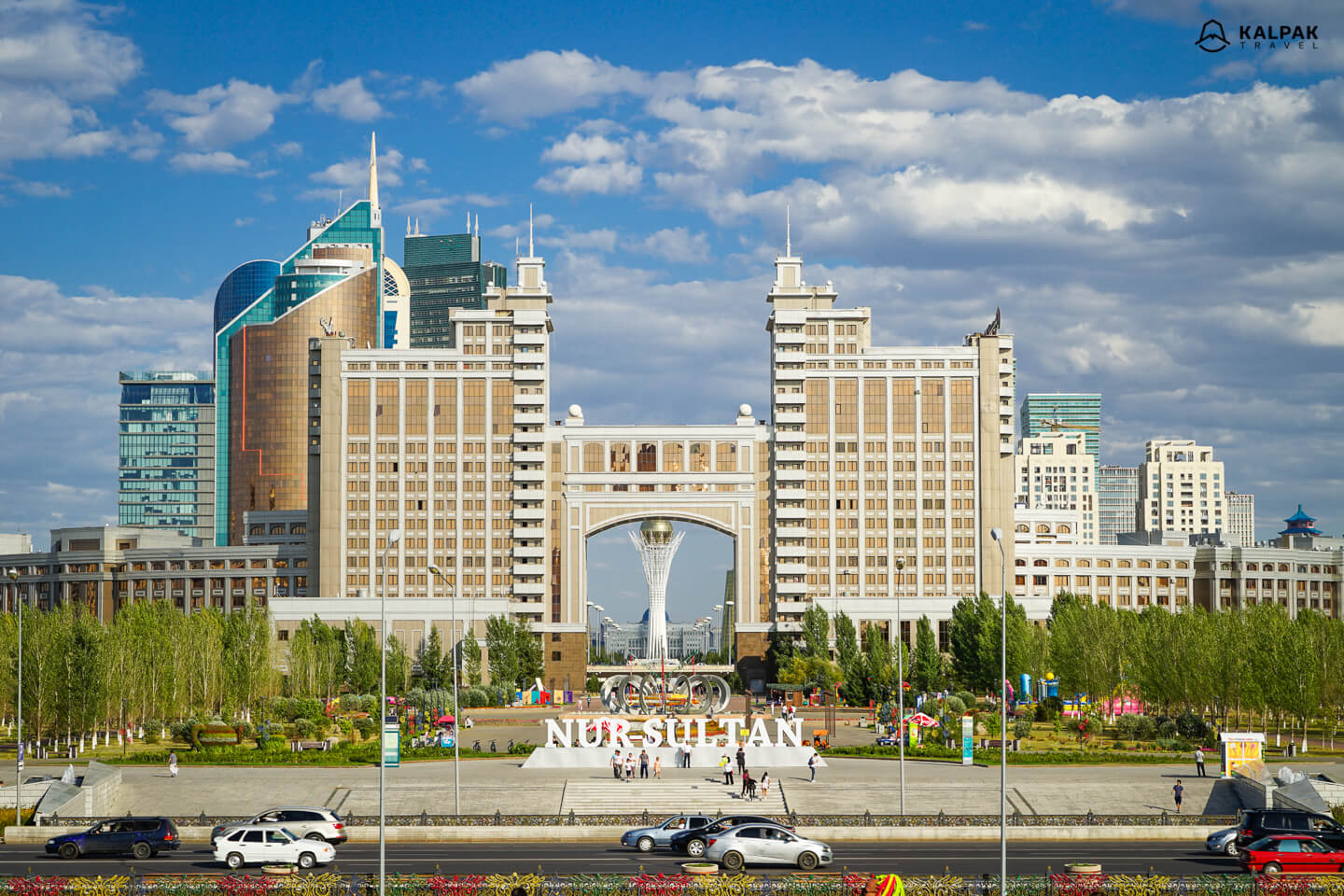
Khan Shatyr Entertainment Center
The literal translation of Khan Shatyr is “Tent of the King” or “Royal Marquee”. It was designed to combine ancient traditions of steppe nomads with modern architecture. This tent-shaped building stands 150 meters tall, was designed by Norman Foster and opened in 2006.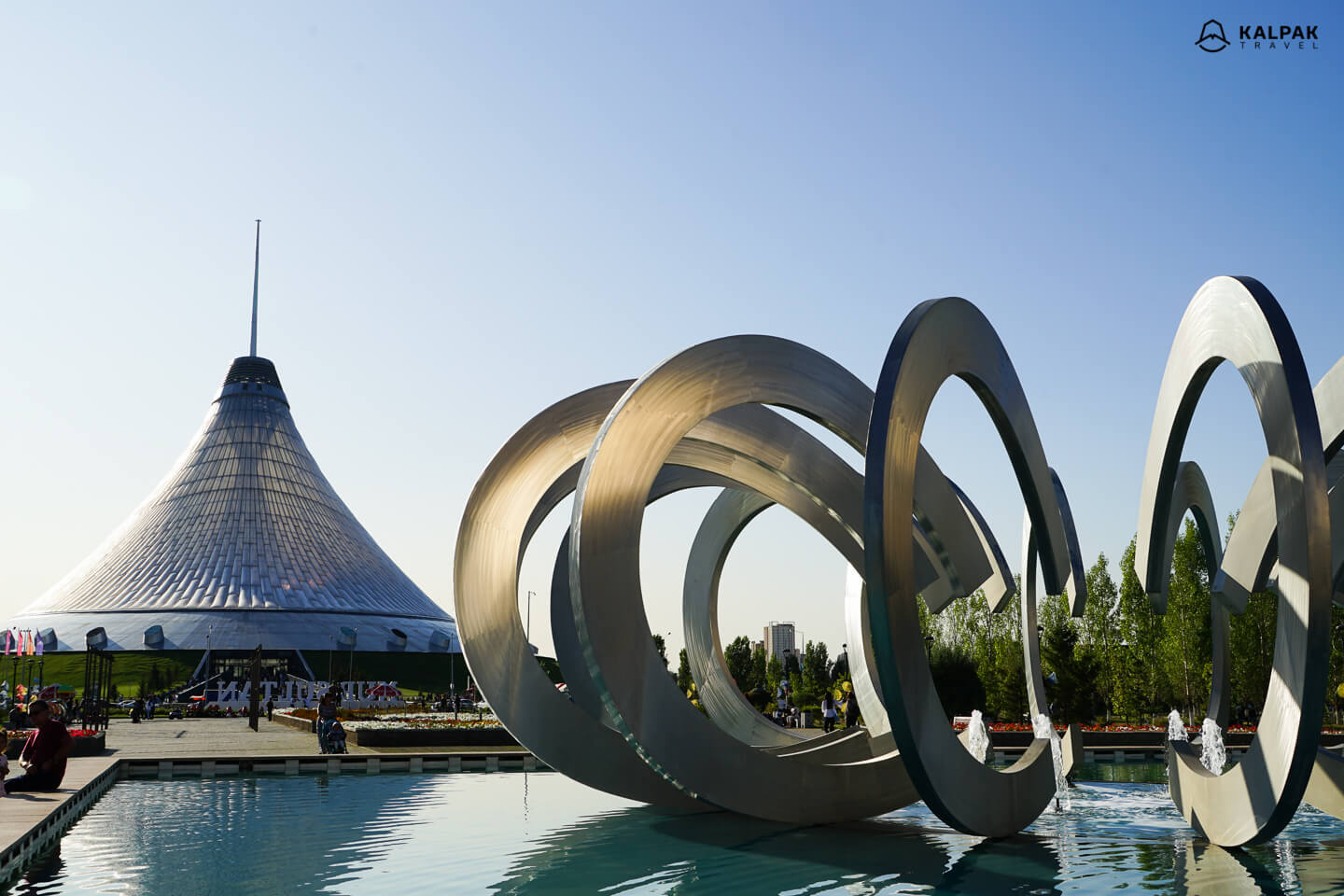 A large shopping mall can be found inside as well as a pool and water park on the top floor. There is also a food court, entertainment for children and a large drop ride in the building’s center.
A large shopping mall can be found inside as well as a pool and water park on the top floor. There is also a food court, entertainment for children and a large drop ride in the building’s center.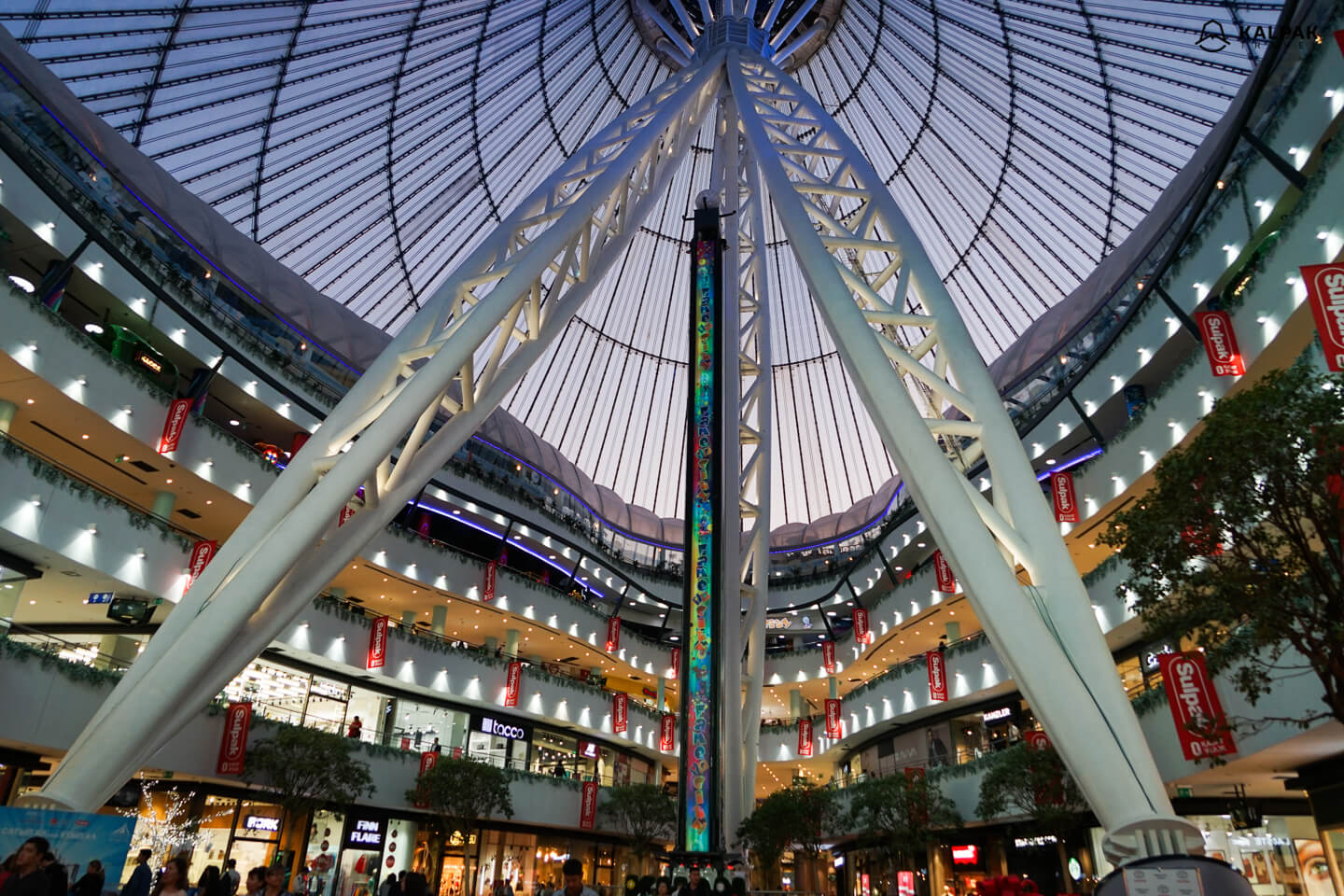 This shopping center is open usually until 10 pm, so you can also stay for dinner there and go for a walk in the evening. It is interesting to see the semi-transparent tent structure at night as it displays a variety of glowing colors.
This shopping center is open usually until 10 pm, so you can also stay for dinner there and go for a walk in the evening. It is interesting to see the semi-transparent tent structure at night as it displays a variety of glowing colors.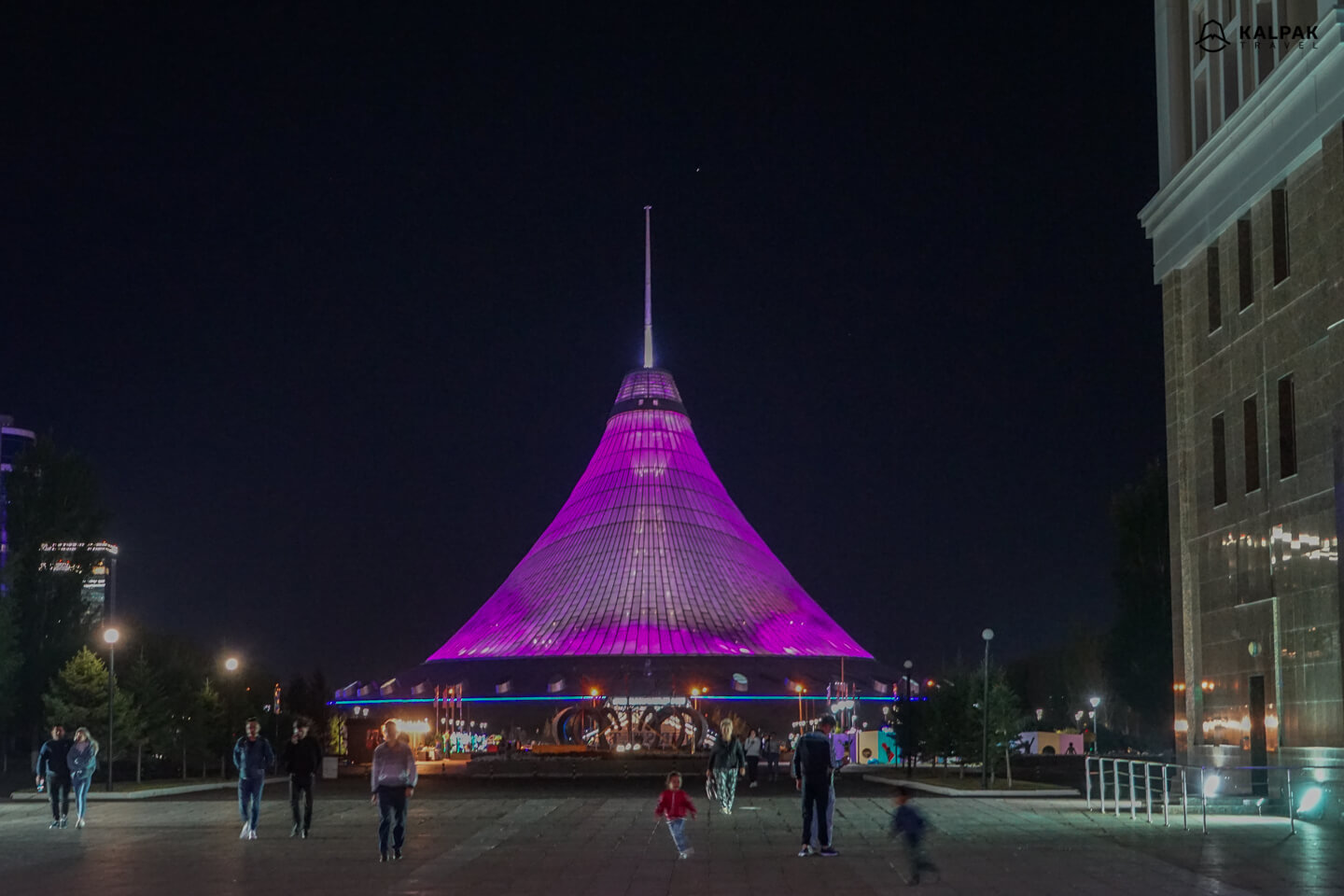
National Museum of Kazakhstan
The National Museum of Kazakhstan opened in July of 2014 and is located next to Kazakh Eli or Independence Square, with its monument symbolizing the nation’s sovereignty. The modern halls impress with their size and general presentation of the exhibits. There are halls dedicated to ancient, medieval and modern history, as well as a hall devoted to Kazakh ethnography. There is also an entire area of the museum focused solely on the modern art of Kazakhstan. For an extra fee visitors can receive permission to photograph, get an audio guide and visit the Hall of Gold. The Hall of Gold houses a reconstruction of the famous Scythian golden man found in Kazakhstan, along with many other gold objects. Overall, the museum will give a good introduction to the history and traditions of Kazakhstan.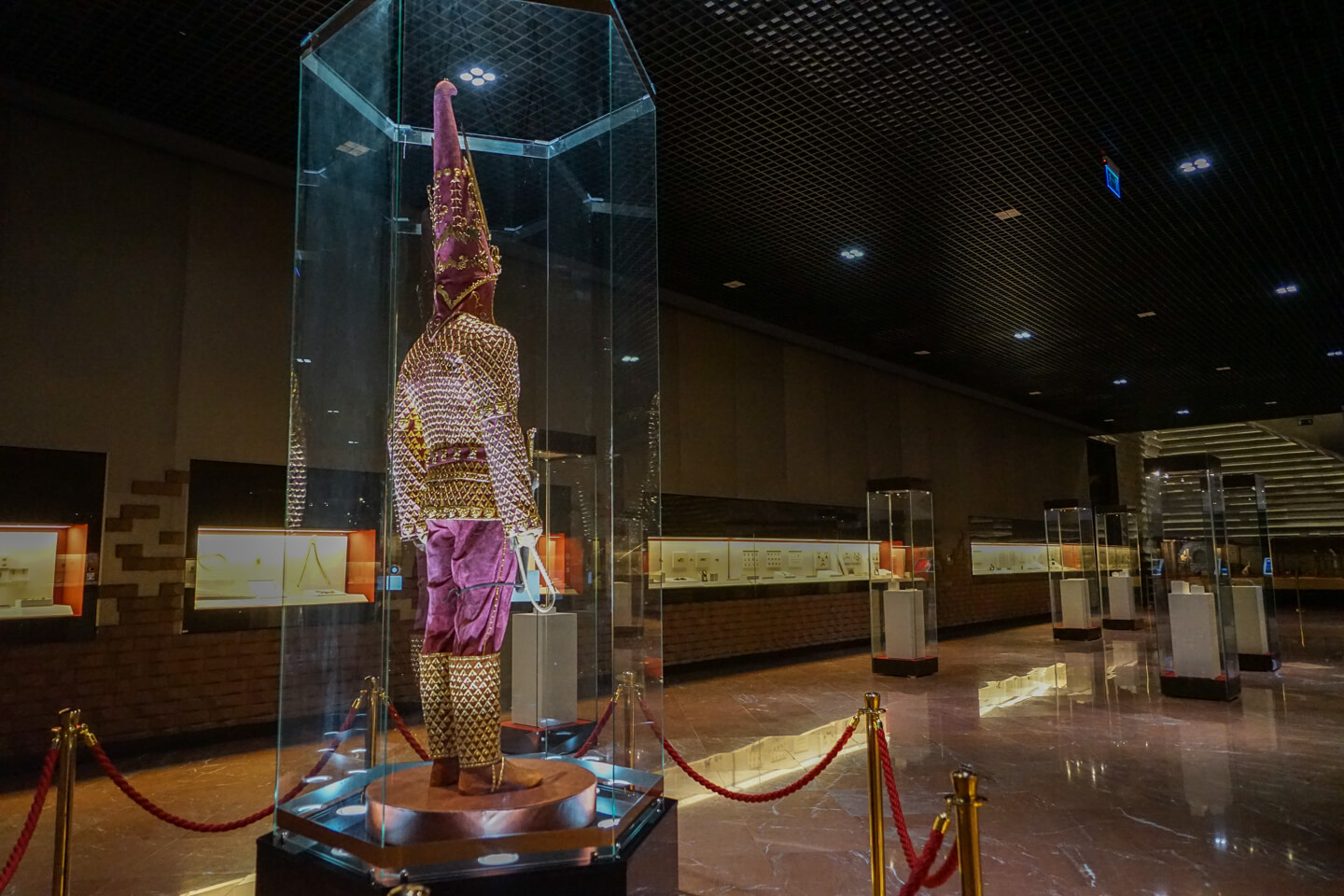
Palace of Independence
The Palace of Independence has created a model replica of the city for visitors to see along with various ethnographic and art exhibitions. Its ground floor is used for a wide variety of different conferences and events.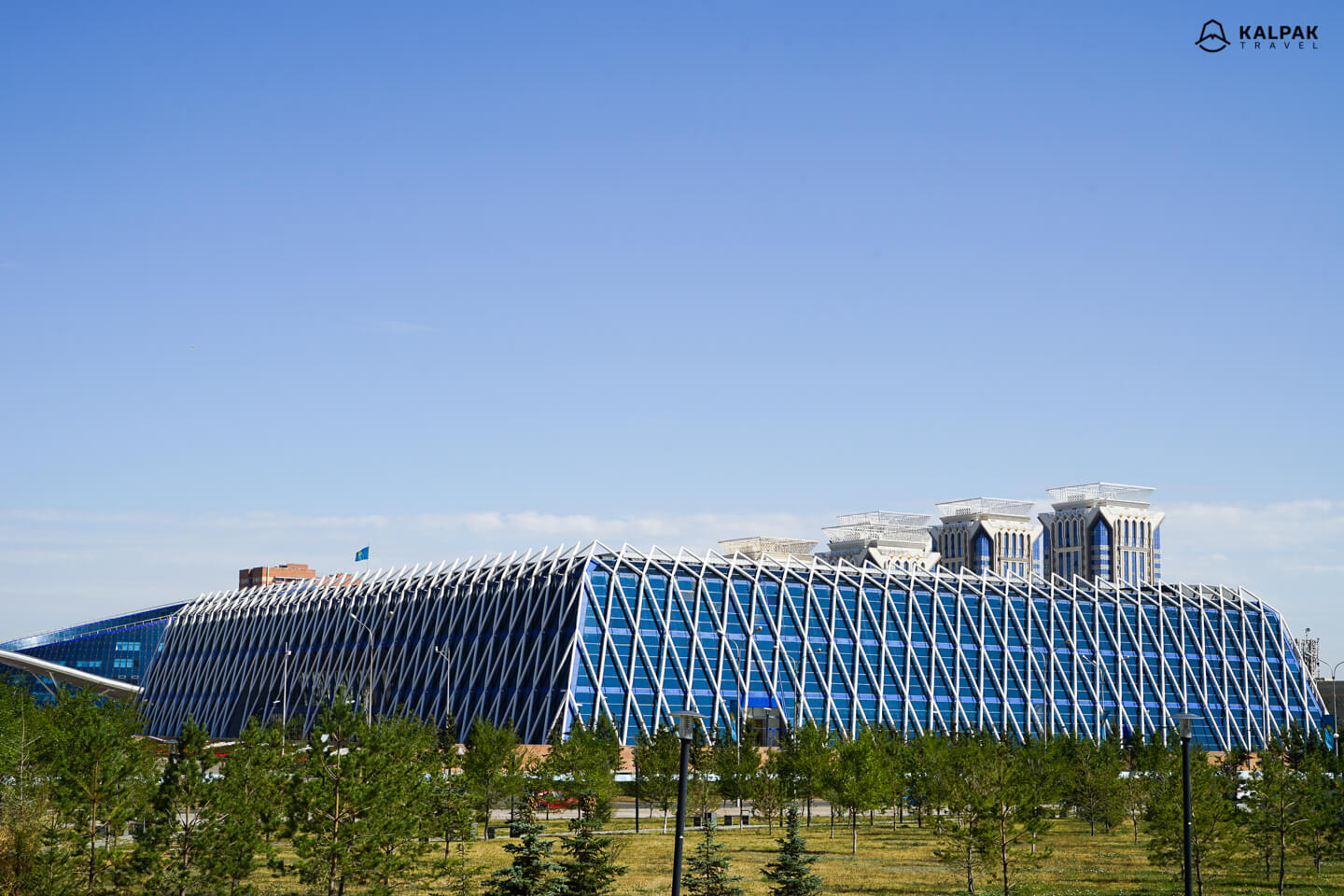
Khazret Sultan Mosque
The “Khazret Sultan” mosque was completed in 2012 and became one of the largest in Kazakhstan. The building has a large dome 52 meters in height with four 77 meters high minarets. It can fit up to 12,000 people on its 3 floors. The third floor is set aside for women to pray and can accommodate up to 1,000 people. The mosque tends to be quite busy on Friday afternoons so visitors should plan their tour accordingly.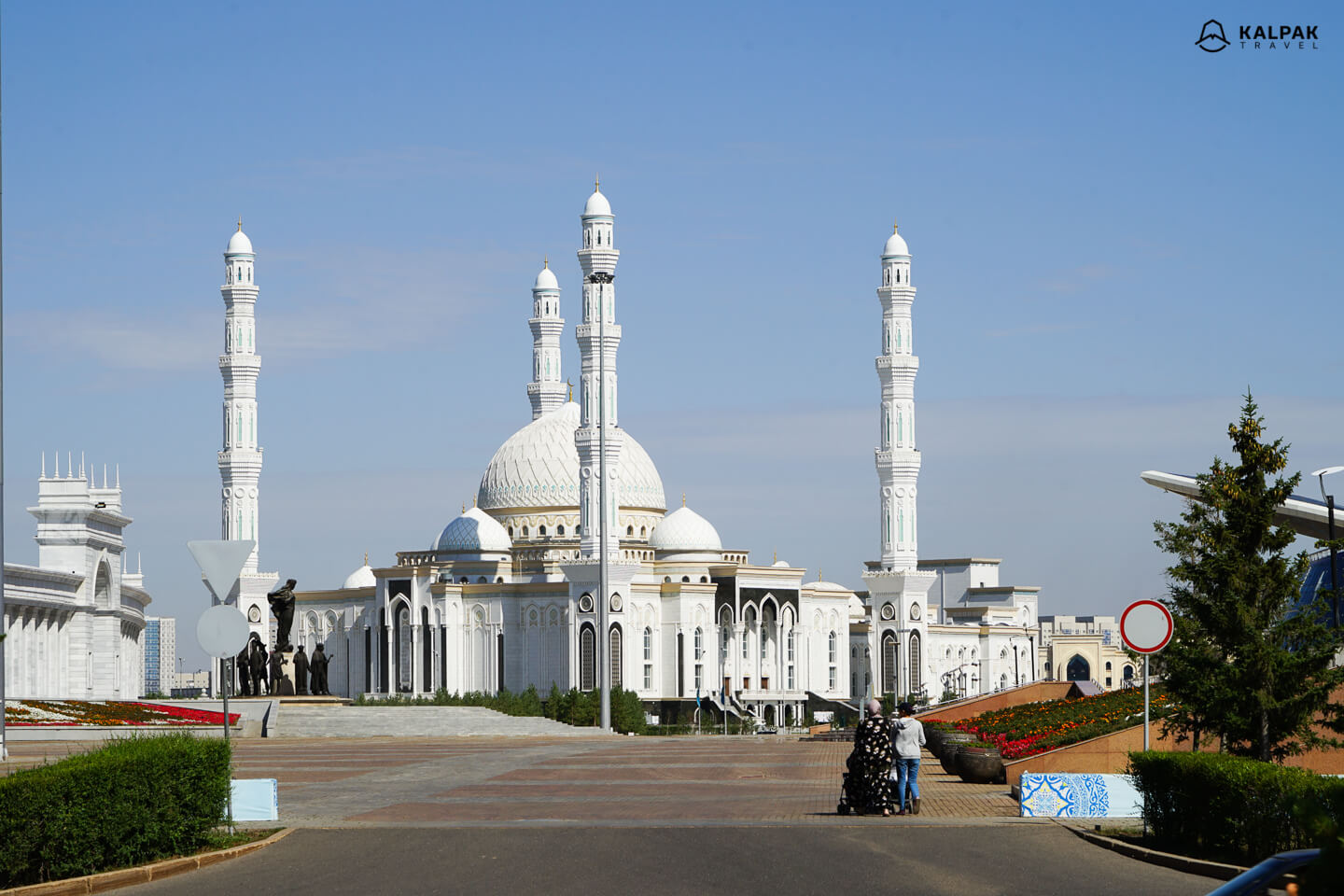
The Palace of Peace and Reconciliation
The Palace of Peace and Reconciliation’s glass and steel pyramid shape can’t help but impress when visiting Astana. It was designed by Norman Foster as a venue for Congress of Leaders of World and Traditional Religions and was completed in 2006. Devoted to promoting peace and understanding across religions, its name reflects the purpose of the congress for which it was built. The pyramid or palace also has an opera house that can seat up to 1,500 people and occasionally will host different art exhibitions.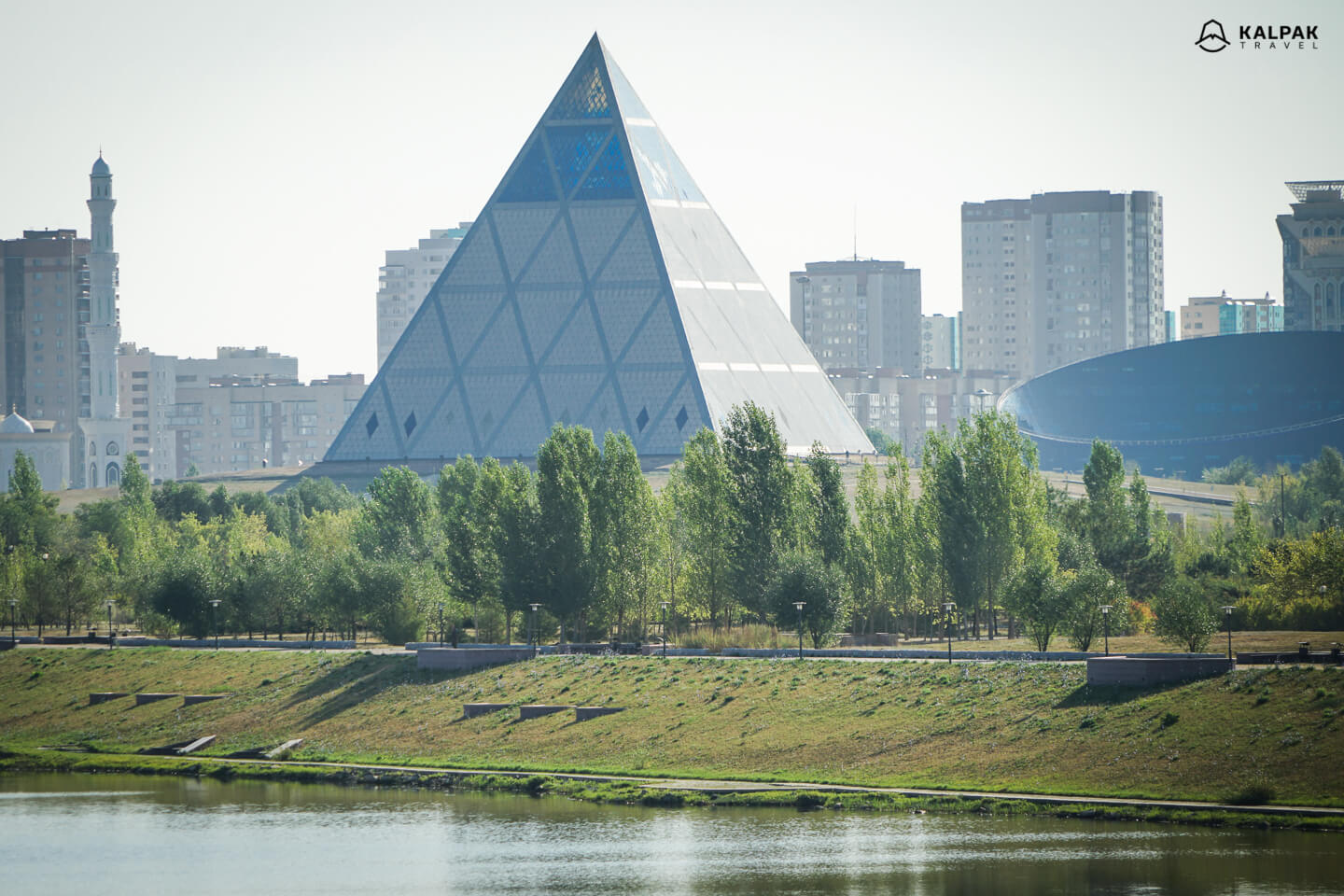
Expo – The “Nur Alem” Sphere
This unique glass building was built for World EXPO-2017 and was Kazakhstan’s exhibition pavilion. After the EXPO it became The Future Energy Museum and is now one of the most modern museums in Central Asia.  It has eight floors dedicated to different sources of energy. On the first and last floor, visitors can learn more about Kazakhstan.
It has eight floors dedicated to different sources of energy. On the first and last floor, visitors can learn more about Kazakhstan.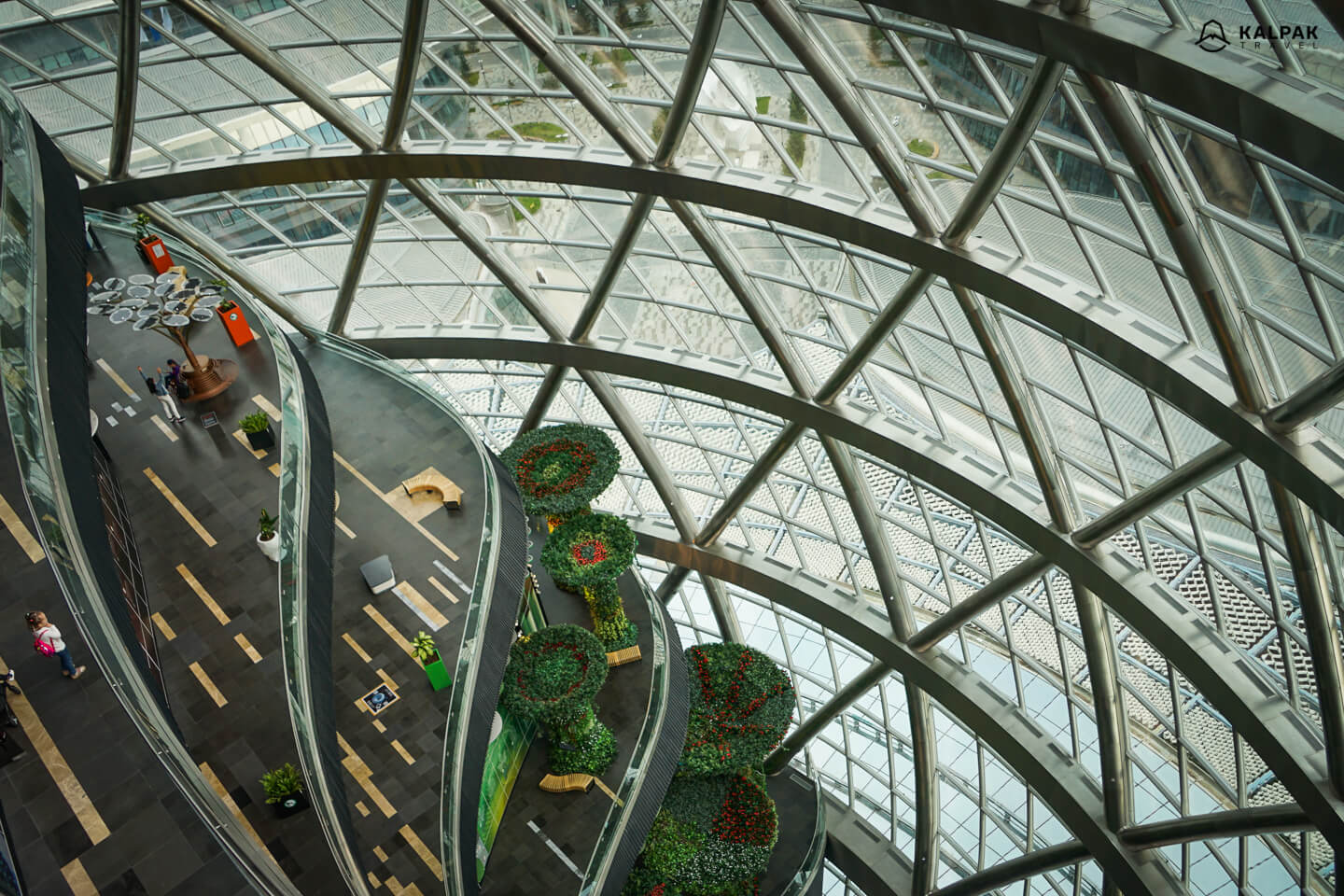
River cruise
Taking a short round trip cruise on the river Ishim should be on the itinerary of any visit to Astana, if you have more time in the city. In summer it usually departs every half an hour.
Old city
If you would like to have a look at some Soviet and pre-Soviet buildings preserved in the city you can have a stroll at the right bank of the Esil river.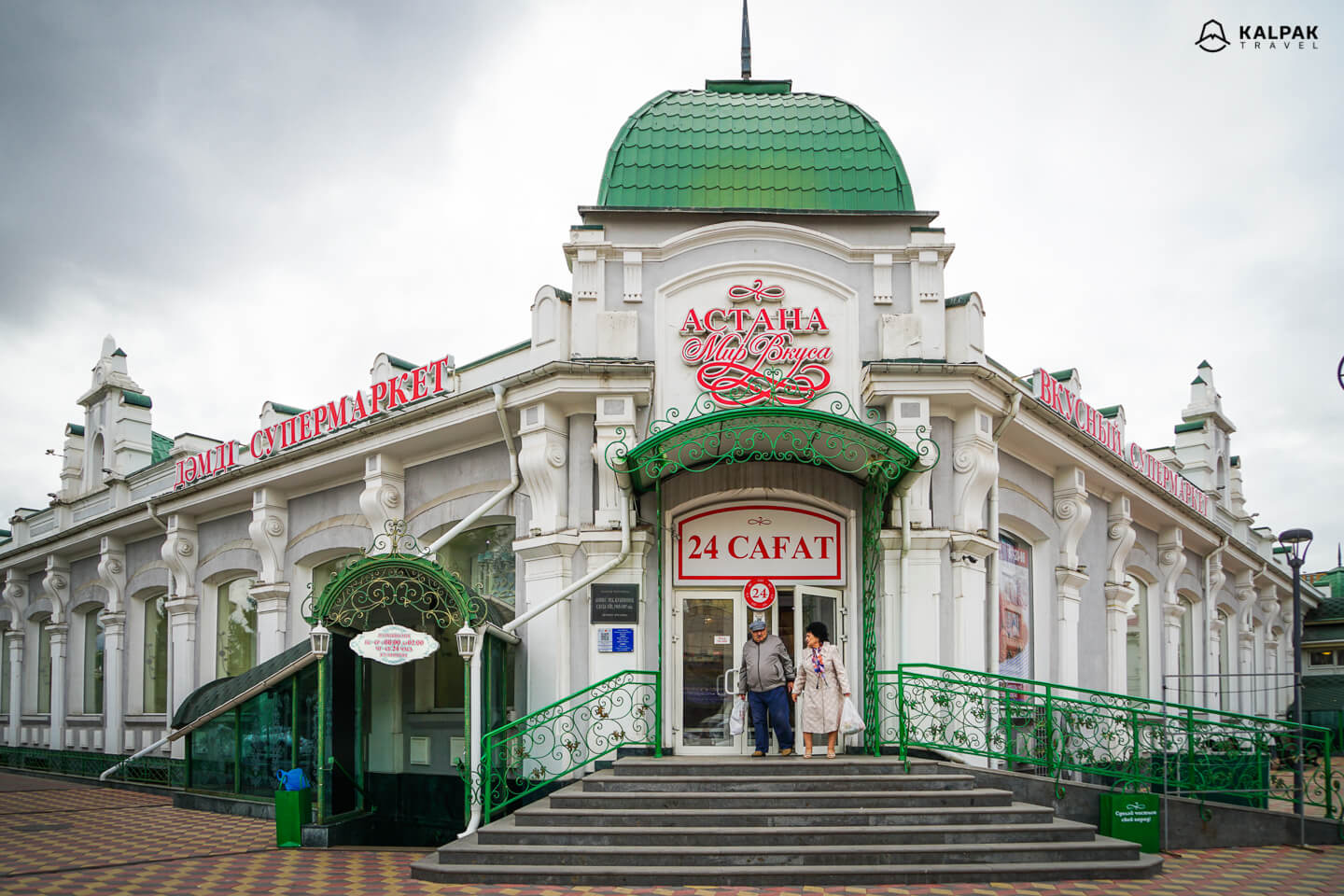
The Memorial Museum Alzhir
The Memorial Museum Alzhir, located 40km outside of the city, to learn more about the dark history of Kazakhstan. Alzhir was the biggest concentration camp in USSR for wives of “betrayers of the homeland”. There you will get an understanding of how people lived, worked and survived in Soviet concentration camps, the infamous “Gulags”.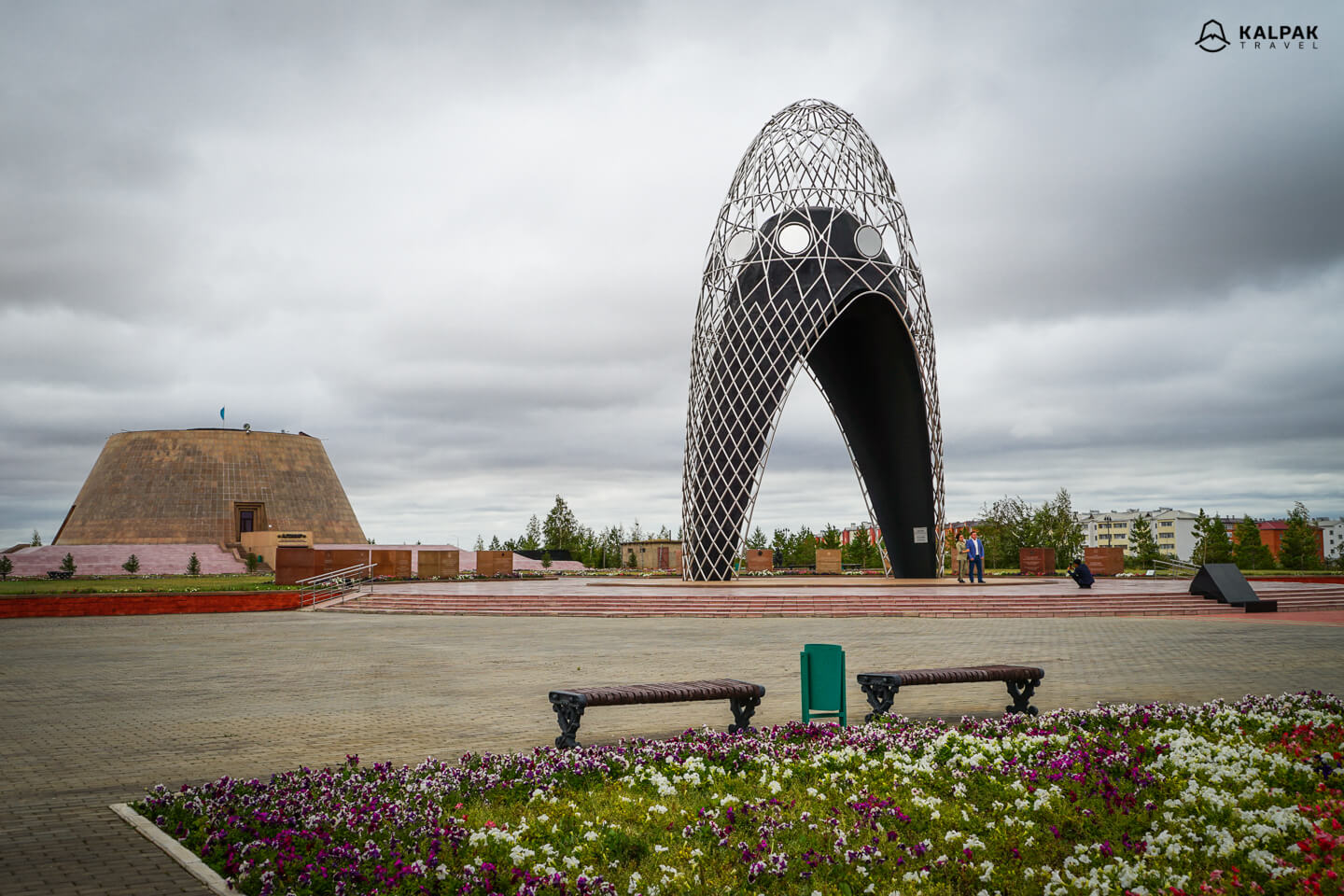
Brief History of Astana
According to some archeological findings , the history of the city goes back to the 7th -8th century AD. These findings were due to the ancient ruins of a buried city Bozok excavated in 1998. It has, throughout its history, been a military headquarters of Turkic tribes, Kypshak Sultans and part of the Golden Horde of Mongols. The modern history of the city begins in 1830 when a Russian fortress named Akmola was established. It grew from a small fortress to the center of the Soviet Unions Virgin Lands campaign of 1953 and was later named Tselinograd in 1961. The airport abbreviation of TSE comes from the old name of the city. 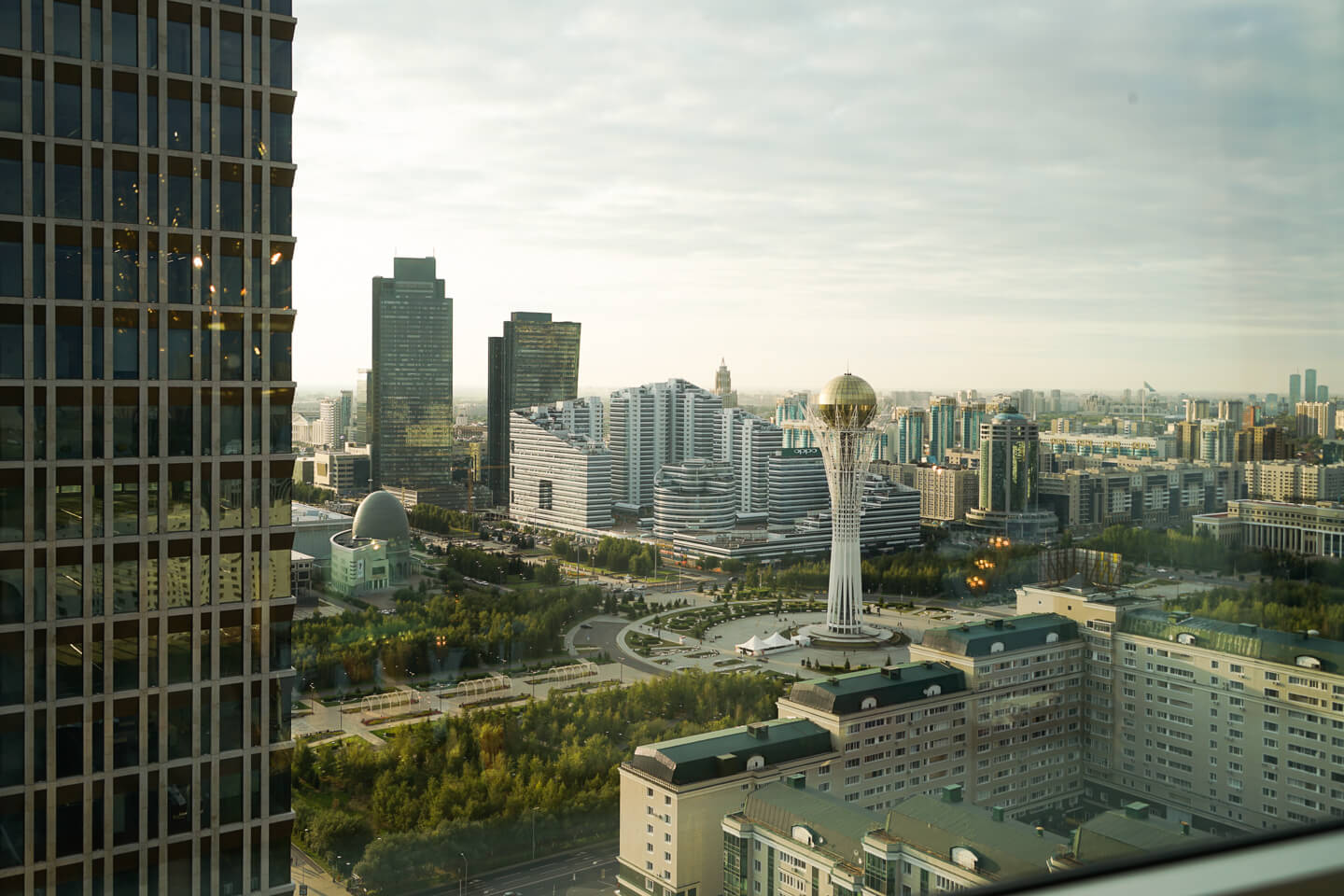
There are free audio guides to explore the city by yourself. You can get for example downloadable official audio guide on izi.Travel and explore it at your own pace. If you would like to visit Astana with Kalpak Travel; join one of our group tours or submit a request for a private tour.


